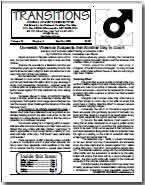It is hard to fathom that the law would exclude a loving father from the life of his child on social policy grounds. Yet this is what occurred recently in NSW when a non-biological lesbian mother successfully applied to have the name of the father, a sperm donor, struck off the birth certificate of his IVF-conceived 10-year-old daughter and replaced with her own.
This kind of court decision, however, will come as little surprise to many dads, all too familiar with the operation of family law in Australia. Usually women’s rights trump the needs of fathers and children, as is again being demonstrated by the Gillard government’s changes to the Family Law Act, which will make it easier for separated mothers to exclude fathers from children’s lives.
Gay rights are being given priority as well. Ironically, however, the landmark birth certificate decision, which has been hailed as a victory for same-sex parenting, is undermining the arguments for gay marriage by ignoring the important role of fathers in rearing children.
Separated fathers wishing to maintain a meaningful relationship with their children have long felt the deck was stacked against them. The best outcome most could hope for was to be allowed to see their children every second weekend and half the school holidays.
If a mother were determined to end all contact with the children’s father, a nightmare awaited. As detailed in John Hirst’s groundbreaking 2005 Quarterly Essay, Kangaroo Court: Family Law in Australia, the legal tactic employed was to make false accusations of child sexual assault against the father. Based on unproven allegations of abuse, the Family Court would decide that a child could be at risk of harm and withdraw the father’s limited access visits.
The Family Court denied a bias towards women. Its former chief justice, Alistair Nicholson, constantly claimed that the best interest of the child was paramount.
Yet there is little doubt that women’s rights were prioritised over those of fathers and children.
This situation started to change in 2006 due to the Howard government’s family law reforms. The Family Law Act was amended to introduce a rebuttal presumption of equal shared parental responsibility, which required parents to consult with each other and reach agreement about important issues in the child’s life. Provided there was no evidence of domestic violence, child abuse or ongoing conflict, the court was required to consider equal shared parental responsibility and, if granted, then consider ordering equal parenting time or at least substantial and significant time for fathers.
Since 2007, militant single-mother groups, abetted by sympathetic lawyers and academics, have been lobbying federal Labor to water down the Howard reforms.
The anti-shared parenting campaigners claim that women and children are being forced to have contact with violent and abusive fathers. At least six reviews have been commissioned to prove this “fact”, yet none of the subsequent reports contain hard evidence that rebuttable shared parenting is exposing women and children to harm.
The Gillard government has got around this by deciding to redefine family violence. The Family Law Legislation Amendment (Family Violence and Other Measures) Bill 2011 has expanded the definition to include psychological harm, financial abuse and other threatening behaviour that controls, coerces or causes fear. Significantly, the government has ruled out requiring that fear of family violence be “reasonable”.
Based on past experience in the Family Court, the expanded definition will create a new and open-ended legal means by which good fathers are banished from the lives of their children. There also no longer will be any penalty (no cost orders) for knowingly making false allegations, and the friendly parent provisions, requiring parents to be supportive of each other’s role in their children’s lives, will be substantially diminished.
The amending bill is due to be read for third time in the Senate in coming weeks and will pass on the votes of Labor and Greens senators. Complaints about the kangaroo justice dished out to fathers in the Family Court used to be the No 1 source of complaints to the offices of MPs. MPs should prepare themselves for a repeat when the new laws start making children fatherless.
Meanwhile, the social policy goal of advancing same-sex parental rights is also being used to justify denying children the right to know their fathers. However, the disregard shown for the interests of children is backfiring and proving the validity of the arguments of opponents of gay marriage.
The case for marriage equality is based on the obvious truth that homosexuals have loving relationships that, it is claimed, deserve official recognition. In other words, marriage should be opened up to include same-sex couples willing and able to live up to the meaning of marriage. There is an inherently conservative hue to this argument.
The case against gay marriage is that marriage establishes the right environment for the rearing of children by a mother and father. Gay activists respond that same-sex couples can be good parents. Critics who point out that children in same-sex families may forgo, to their detriment, the care of a mother or father are branded homophobic. By ignoring the substantive point, the welfare of children is set aside in favour of advancing the right of homosexuals and lesbians to be parents.
This is the disturbing significance of the controversial NSW birth certificate decision. That no gay spokesperson has expressed concern for the father and child stolen from each other speaks volumes about their priorities. Traditionalists have long argued in defence of marriage that the institution is fundamentally about the rights of children and that advocates of gay marriage just don’t get this. Based on the “sperm donor dad” case, they appear to have a point.
Jeremy Sammut is a research fellow at the Centre for Independent Studies.
Source: Women's rights push dads aside (http://www.theaustralian.com.au/national-affairs/opinion/womens-rights-push-dads-aside/story-e6frgd0x-1226128389989)


